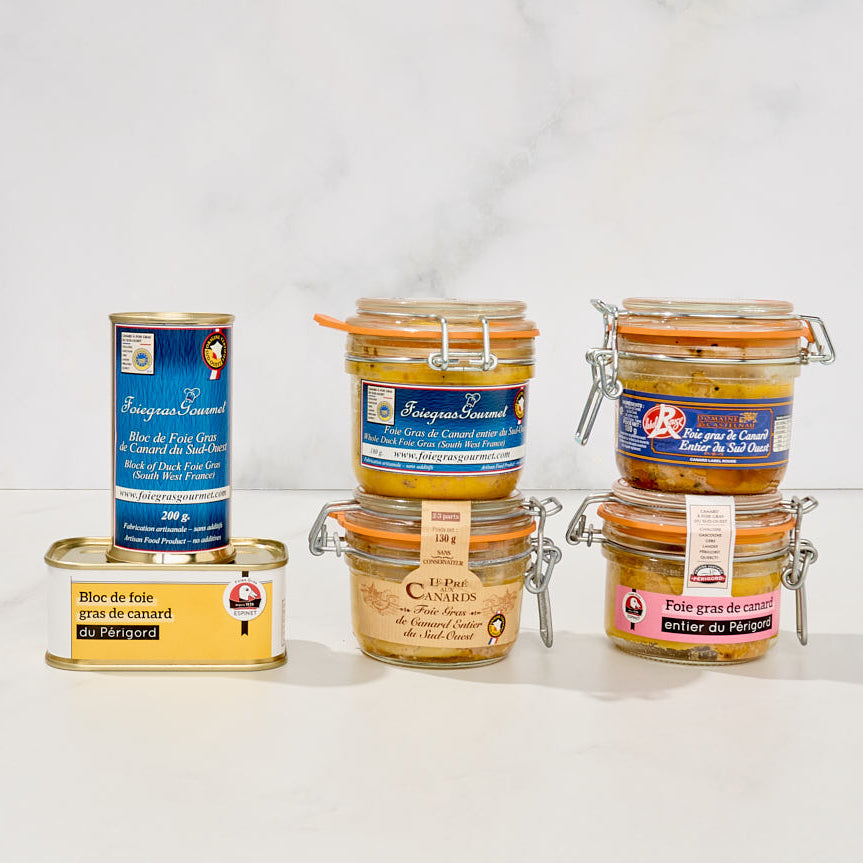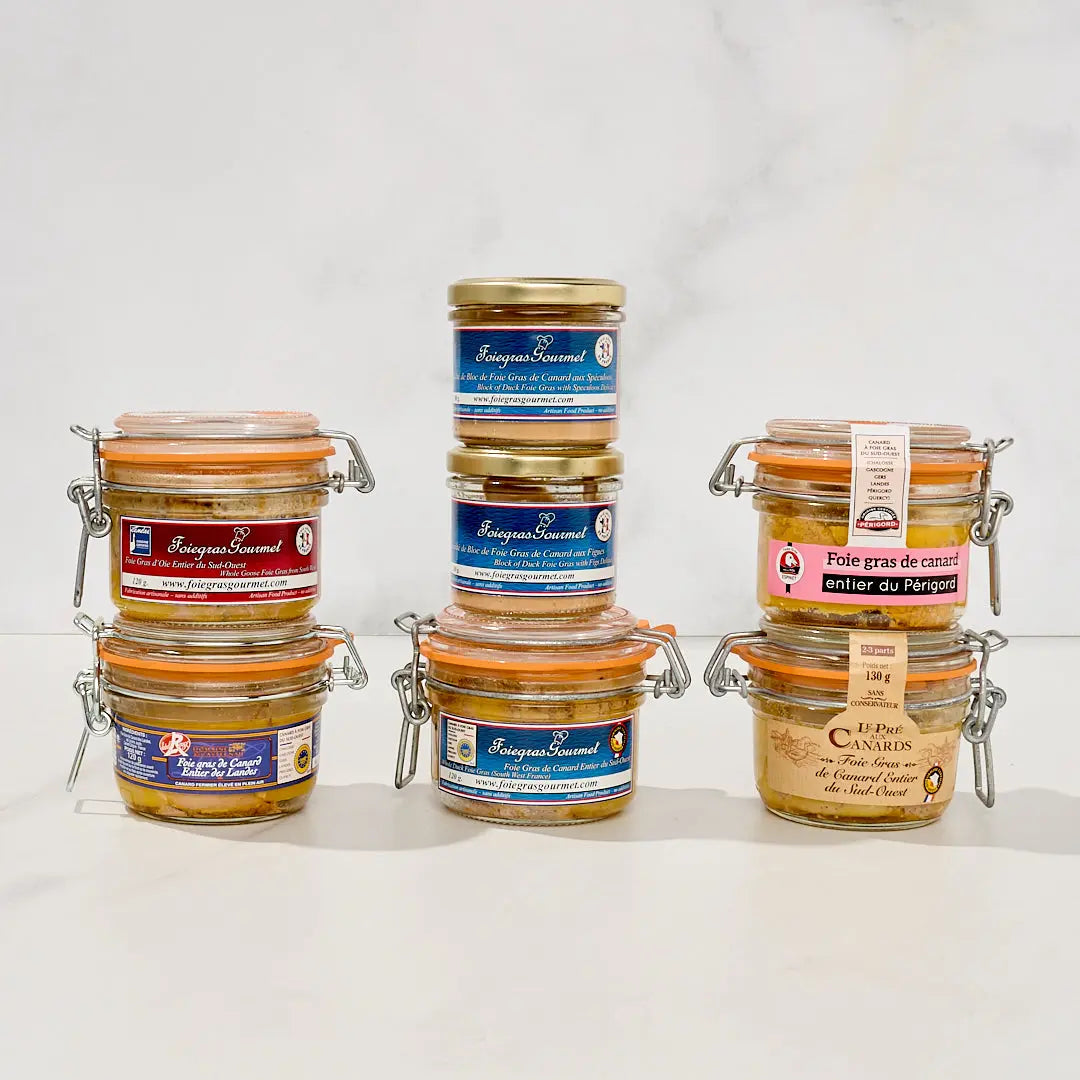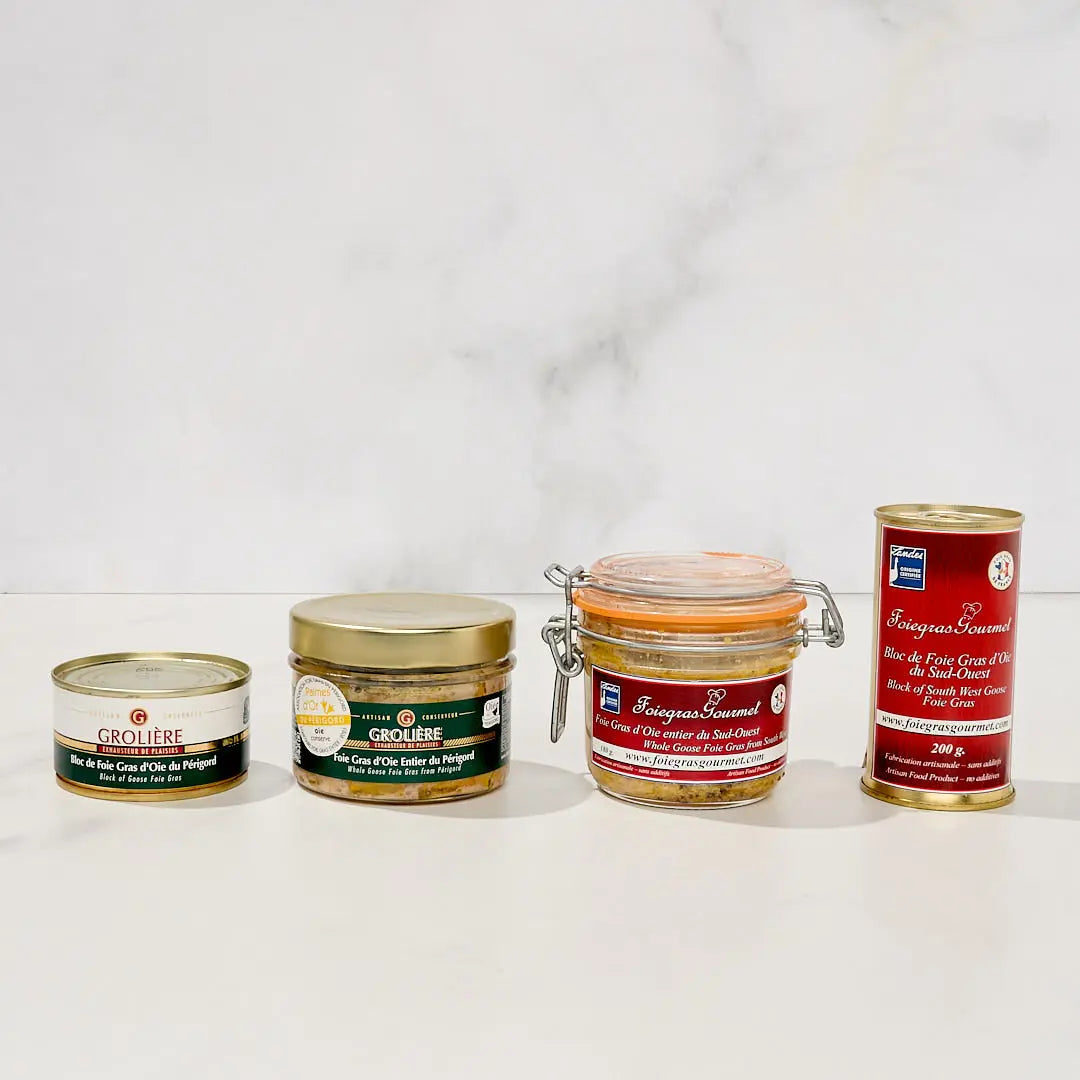Foie gras and cheese: customs formalities
According to a number of studies, foie gras and cheese are the 2 products that French-food lovers crave and miss most. However, unlike wine and certain other French specialties, getting your hands on good foie gras and traditionally prepared French cheeses can be a difficult task. Unfortunately, there is not always an alternative choice to paying astronomical prices for product often made industrially rather than traditionally by small-scale artisans.

Within the European Union, products are exchanged without constraints or customs barriers. So there is no customs issue when buying foie gras if you are in England, Germany, or any of the 28 countries of the European Union. You will never pay any customs fees and your products are unlikely to be held up.
But outside of this free trade area, distance, customs clearance difficulties, and potential customs fees partly explain the challenges in finding foie gras and cheeses at affordable prices.
Customs: Committed to ensuring Public Health
Customs administrations aim to stop any food items potentially unfit for human consumption and liable to negatively impact the health of the public from entering their territory. It is impossible to compile a full list of each country’s food bans and regulations. Many health standards, as well as cultural, economical and political principles must be taken into account in order to understand customs officials and it can be hard to decipher any logic at times.
Let us nevertheless consider 2 aspects.
The sterilization of agri-food products significantly limits the risk of problems with customs.
A raw product may eventually be more likely to cause problems, as bacteria can develop. This has often been criticized in raw milk cheeses. Conversely, if the product is cooked at high temperature, sterilized, it has been rid of its "potential" dangerous components and this, in a number of cases, does not alter its taste in any way.
Agri-food products must be kept in the refrigerator or are at greater risk of being held up by customs.
A product that must be kept cold can become unfit for consumption if the cold chain is not respected. Indeed, it can "go bad" and then become potentially dangerous when consumed.
Customs and transport of foie gras
There are3 different types of foie gras: fresh foie gras which will then be pan-fried, semi-cooked foie gras (pasteurized at about 85°C, it must then be kept cool between 0 and 4 °C) and canned foie gras (the most traditional form of foie gras, it has been sterilized or "appertized" at 110 °C). It no longer needs to be kept cool.
Canned foie gras can stay in full sun for several hours on an airport tarmac. The fat from the liver will melt but this will not make it unfit for consumption and it will not alter the quality of the product in any way. Just put it in the refrigerator for 2 hours before enjoying it and it will be just as good.
Some gourmets will prefer pan-fried foie gras, others will prefer semi-cooked foie gras, and still others canned foie gras. And some will love it in all forms, as long as the foie gras is good. Because the important thing is obviously the quality of the foie gras, whether it is raw, semi-cooked, or canned.
For customs officials, far removed from these taste considerations, only canned, sterilized foie gras that does not need to be stored in the refrigerator is deemed non-dangerous, as explained for example in this official document from the Australian customs (clearer and easier to read than U.S. customs regulations but with very similar content) and in this article from FrenchMorning, a magazine for French people living in the United States.

Can I transport foie gras by plane?
The transport of foie gras by plane is subject to regulations that may vary by country and airline. Some airlines and some countries allow the transport of foods such as foie gras in carry-on or checked baggage, while others may impose restrictions or bans.
So keep the following in mind:
- Check if you can bring foie gras into your country or if there are customs restrictions.
- Buy foie gras of less than 100 grams if you are taking it with you in your hand luggage.
- Choose to transport foie gras in containers of 200 grams or less in checked baggage.
- It is recommended to carefully wrap each glass container so that it does not break inside the suitcase or to buy foie gras preserved in a metal can.
- Check with your airline their policy on transporting food, particularly foie gras.
Keep these arguments in mind to explain them to the customs officer. If you are sending foie gras via postal operators or integrators, or if you are ordering online, a very important point is to ensure that the customs declaration has been correctly filled out, including the product's customs code (1602.20 for foie gras).
Customs and transport of fromage
Due to the fact that artisanal cheeses are mostly made from raw milk and that they are stored in the refrigerator,Getting through customs with cheese is frankly not a simple matter. Many arguments support the strictness of customs officers, even if we may regret it, justifying with good reason that millions of French people eat cheese daily without any health issues.
It is all the more frustrating when you know that there are certain varieties of cheese that keep better and longer than others. For example, most pressed, cooked, or blue cheeses are easier to store than soft cheeses with bloomy or washed rinds. And yet, even for these cheeses (Brie, Camembert, Neufchatel, Livarot, Pont-L'Evêque, Munster, Epoisse) you can easily keep them for two to three days outside the refrigerator optimally by leaving them in their original packaging and wrapping them in a damp cloth.
But how to explain this to the customs officers and ask them to know the characteristics of the 360 types of cheese produced in France.
We can only warn you about the risks of your cheeses being held up in customs. The difficulty with customs officials, no matter the country in the world, is that it is never easy to discuss when your goods are held up, rightly or wrongly. Remember the famous sketch by Fernand Raynaud.
That is why we have decided to no longer deliver to China, for example, where the regulations do not seem to pose any problems, but where 1 out of 4 times, for reasons we do not understand, the foie gras is blocked.
Customs fees foie gras
Clearing customs is one thing, but for countries outside the European Union, there may be customs fees (to which VAT will be added) that will be requested from you upon delivery of the package. Rinquire with the customs authorities of the destination country or ccontact us and we will be happy to assist you.
In any case, today, you have no reason to deprive yourself of foie gras if you live abroad. Just trust Foie Gras Gourmet which offers excellent foies gras, gold medalists at the Paris Agricultural Competition and a delivery entrusted to specialists well-versed in all customs issues.













Bonjour lesbats, cela dépend de la réglementation sanitaire et douanière de chaque pays et de la bonne volonté des douaniers, mais si c’est pour les Etats-Unis, nous vous conseillons de les emmener avec vous dans vos bagages (car c’est bien légal pour votre consommation personnelle, à l’inverse du pâté), ou autrement nous pouvons vous livrer en fournissant les documents douaniers et autorisations adéquates.
Bonjour Tran David, vous avez normalement le droit d’emmener avec vous du foie gras car ne contient pas de porc à l’inverse du pâté. Les douaniers ne connaissent cependant pas toujours bien la législation.
J’ai fait venir en cadeaux foies gras de canard conserve ,boites métalliques la douane
a refusé en disant: “prohibé retour à l’expéditeur” depuis pas de nouvelles !
Que puis-je faire ?
Bonjour
est ce que j’ai eu le droit de amener le foie gras en pot de verre sous vide et steriliser au USA dans l’avion
Merci
Leave a comment